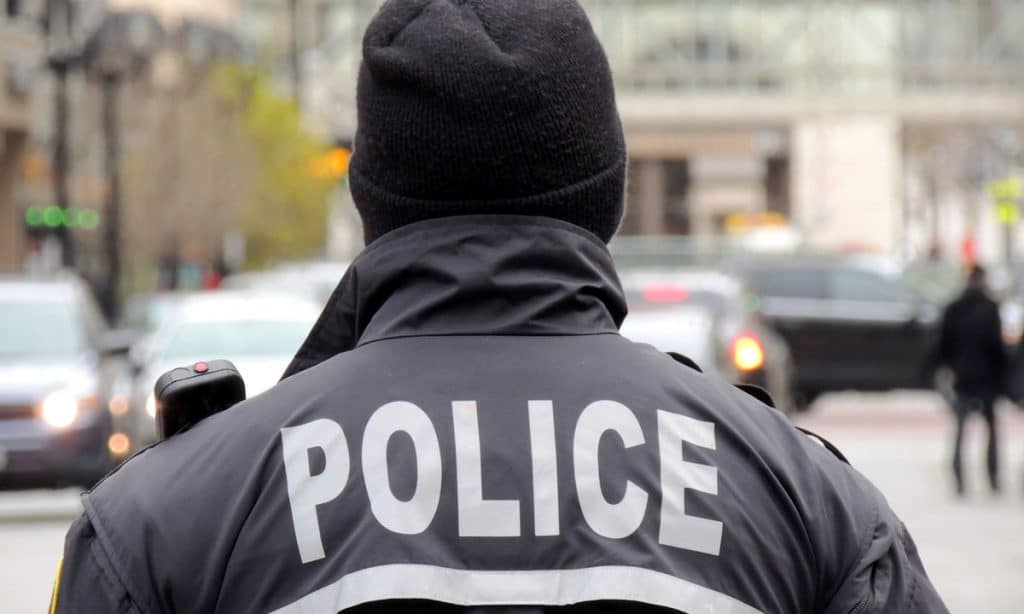While marijuana is no longer bound by total prohibition, police are still finding ways to drag people to jail for using this stuff. And sometimes, these legal troubles are brought on by a person’s own admission.
Now that marijuana is legal in more spots across the United States, people seem to have this idea that it’s okay to be all willy-nilly about their pot use. Some believe that legalization means there are no longer any rules associated with this plant, so they throw caution to the wind when it comes to leaving their homes with weed. And that can spell disaster in some cases, especially with any situation involving a pot consumer and the police.
While marijuana is no longer bound by total prohibition, the boys in blue are still finding ways to drag people to jail for using this stuff. And sometimes, these legal troubles are brought on by a person’s own admission.
Earlier this week, just hours after Michigan officially launched its retail pot market for adults 21 and older, the Detroit News reported that a motorist crashed into a state police vehicle. The cause of the accident was the result of hazardous road conditions, yet, when grilled on the matter, the driver told officers that he had smoked marijuana earlier in the day. “He admitted to smoking marijuana (before) the incident,” State Police Lieutenant Sarah Krebs told the news source. That’s all the evidence of impairment that the cops needed to drag this poor soul straight to jail.
RELATED: How To Keep Police From Searching Your Vehicle For Weed
The report indicates that the motorist was “driving too fast for road conditions,” which inadvertently caused the vehicle to spin out of control and ram into a police cruiser along Interstate 75. In the event of a nasty crash (even one where there are no injuries), it is typical for police to investigate the matter to see if any type of impairment may have been the cause. If they suspect that a motorist is under the influence of alcohol, they take steps to either confirm or eliminate that suspicion from the equation. A breathalyzer is all police really need to come to this conclusion.

Police Ramping Up
But now that marijuana is legal, law enforcement in these jurisdictions are hellbent on pinning accidents on stoned driving. Police officers in Illinois are already ramping up their efforts to bust high drivers ahead of the January launch of the state’s recreational marijuana market. Only the cops do not have the appropriate roadside tools (there’s no breathalyzer for marijuana) to prove that someone has actually been smoking weed.
Suspects must undergo a blood test before this determination can be made. And a motorist would have to be really high (bloodshot eyes, reeking of weed and displaying bizarre behaviors) before the cops would ever get serious about pressing the issue.
RELATED: Get Busted Driving With Marijuana And You May Lose Your Vehicle
Even if you have been smoking marijuana before taking a cruise, never admit that to police. Because if you do, the cops will surely arrest you, take you in for a blood test, charge you with driving under the influence of drugs (DUID), and you will sit in the county jail until you can bail out. Your admission of guilt will make it difficult to fight your case in court, and a judge will likely convict you of DUID.
From there, you’ll lose your driver’s license and have to endure drug classes and jump through a bunch of other hoops to get it back. No, no, no. Make the police work for it. No matter how it shakes out, your silence will still give you a better chance at beating the charge in court. This is because there are no proven methods for determining marijuana impairment. Police can only tell that you’ve used marijuana at some point. And that’s not enough to convict a person for DUID.
Legal experts in states where marijuana is no longer bound by prohibition say most of the stoned driving cases end up either dismissed or acquitted because the prosecution cannot prove impairment.
“You’ll see in police reports that they’ll have the watery eyes and the smell of marijuana,” which “helps the DA, but at the same time there is no measurable amount and you don’t know whether or not a person is actually impaired,” California defense attorney Robert Shatzco told KRON4. “We’re helping our clients to either get the cases dismissed or get them reduced down to a lesser charge.”
So, stop telling on yourselves.


